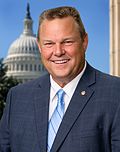| McDonald v. City of Chicago | |
|---|---|
 | |
| Argued March 2, 2010 Decided June 28, 2010 | |
| Full case name | Otis McDonald, et al. v. City of Chicago, Illinois, et al. |
| Docket no. | 08-1521 |
| Citations | 561 U.S. 742 ( more ) 130 S. Ct. 3020; 177 L. Ed. 2d 894 |
| Argument | Oral argument |
| Opinion announcement | Opinion announcement |
| Decision | Opinion |
| Case history | |
| Prior | Judgment for defendants, 617 F. Supp. 2d 752 (N.D. Ill. 2008), aff'd, 567 F.3d 856 (7th Cir. 2009), cert. granted, 557 U.S. 965(2009). |
| Holding | |
| The right to keep and bear arms for self defense in one's home is protected under the Second Amendment, and is incorporated against the states through the Due Process Clause of the Fourteenth Amendment. | |
| Court membership | |
| |
| Case opinions | |
| Majority | Alito (Parts I, II–A, II–B, II–D, III–A, and III–B), joined by Roberts, Scalia, Kennedy, Thomas |
| Plurality | Alito (Parts II–C, IV, and V), joined by Roberts, Scalia, Kennedy |
| Concurrence | Scalia |
| Concurrence | Thomas (in part and in judgment) |
| Dissent | Stevens |
| Dissent | Breyer, joined by Ginsburg, Sotomayor |
| Laws applied | |
| U.S. Const. amends. II, XIV | |
This case overturned a previous ruling or rulings | |
| |
McDonald v. City of Chicago, 561 U.S. 742 (2010), was a landmark [1] decision of the Supreme Court of the United States that found that the right of an individual to "keep and bear arms", as protected under the Second Amendment, is incorporated by the Fourteenth Amendment and is thereby enforceable against the states. The decision cleared up the uncertainty left in the wake of District of Columbia v. Heller (2008) as to the scope of gun rights in regard to the states.
Contents
- Background
- McDonald v. Chicago as compared to NRA v. Chicago
- Regulations challenged
- Legal basis for incorporation
- Amici curiae
- Decision
- Central Second Amendment findings
- Opinion
- Dissents
- Reception
- Related cases
- See also
- References
- External links
Initially, the Court of Appeals for the Seventh Circuit had upheld a Chicago ordinance banning the possession of handguns as well as other gun regulations affecting rifles and shotguns, citing United States v. Cruikshank (1876), Presser v. Illinois (1886), and Miller v. Texas (1894). [2] The petition for certiorari was filed by Alan Gura, the attorney who had successfully argued Heller, and Chicago-area attorney David G. Sigale. [3] The Second Amendment Foundation and the Illinois State Rifle Association sponsored the litigation on behalf of several Chicago residents, including retiree Otis McDonald.
The oral arguments took place on March 2, 2010. [4] [5] On June 28, 2010, the Supreme Court, in a 5–4 decision, reversed the Seventh Circuit's decision, holding that the Second Amendment was incorporated under the Fourteenth Amendment, thus protecting those rights from infringement by state and local governments. [6] It then remanded the case back to the Seventh Circuit to resolve conflicts between certain Chicago gun restrictions and the Second Amendment.




